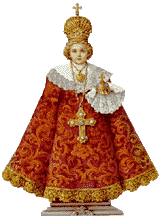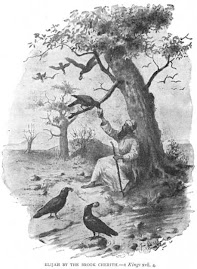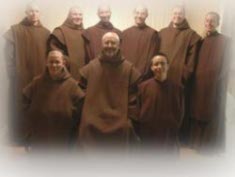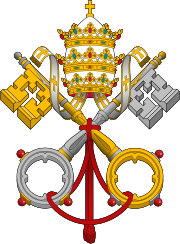 "In the Hands of the Living God" - fragments of chapter 4 of the book entitled "In the silence of Mary- the life of Mother Mary of Jesus Carmelite Prioress and Foundress 1851-1942". In this chapter we shall follow Sister's Mary of Jesus spiritual development and growing intimacy with God - described mostly in her own words. Part 2.
"In the Hands of the Living God" - fragments of chapter 4 of the book entitled "In the silence of Mary- the life of Mother Mary of Jesus Carmelite Prioress and Foundress 1851-1942". In this chapter we shall follow Sister's Mary of Jesus spiritual development and growing intimacy with God - described mostly in her own words. Part 2.Together with this purification went the old fear, lulled by her having attained to Carmel, but awakened now with deeper intensity than ever before, that she would never reach God, that He would always reject her. 'My grief at the delay of my Profession was great, for this delay seemed to me a new rejection on God'a part. I could not see how the attitude of the Sisters would ever change, or that they would ever accept me. Yet my soul could not doubt that from all eternity God had intended me for Carmel. I knew and felt that I was unworthy, not only of being the spouse of Christ, but even of living in Carmel. In the thought that I was only being tolerated out of charity, and that I deserved to be sent away, I had great peace and real happiness in my will.' This period deepened the bond between the novice and her Prioress, to whom, in every way, she owed much. There was the support, not to be underestimated, of knowing that Mother Mary of Blessed Trinity still believed in her vocation. The sympathy was there, even if it rarely found expression. The Prioress was too spiritual to interpose her own human comfort between any soul and God's action. She was also too prudent to attempt to conciliate opposition by any display of protection or indulgence. The only way to help the Sisters through their part of the trial was to offer them practical and incontrovertible proof of the virtue of the novice they were tempted to refuse. Therefore, both for that reason and in order to second the work of God in the soul confided to her care, she adopted towards her a most unwanted severity. In Chapter and out of it, in public and in private, the novice was scolded and humbled constantly, often for faults she had not, in fact committed. Years later, an English novice who had heard rumours of these unmerited reprimands, asked Mother Mary of Jesus: 'But how could you keep silence, Mother?' 'Oh, that was not difficult' was the answer, 'if I had not committed those faults, there were many others of which no one knew but myself'. In spite of this severity, Sister Mary of Jesus was conscious of a great bulwark of love and understanding. Once, speaking to one of her own daughters in England, she told how she had one day paused absent-mindedly before a long window in which she was clearly reflected, and had proceeded to adjust a part of the Habit which had slipped awry. This unconcious violation of the religious rule that forbids mirrors was committed in public, in full view of several older members of the community, and at the next Chapter she heard a good deal about the vanity and ignorance of any novice who could so far forget herself. At the end, however, Mother Mary of the Blessed Trinity added, with something suspiciously as a twinlke: 'At least I have not to reprimand you for trying to conceal your fault!' 'Oh! I was very much ashamed' said Mother Mary of Jesus, in relating to the incident, 'but Mother Mary of the Blessed Trinity understood: sha had made a few little mistakes in her own time, you see!' Another vivid little impression is of the Prioress slipping unobserved into the novice's cell one evening, to attend herself to a pair of hands that had once more come to grief at a wash. She felt it unwise at that point even to send the novice to infirmary for a bandage, lest this should be interpreted as a sign that she was too delicate to observe the Rule. As in her postulancy, only twice was the darkness relieved. 'Following on a confession that I looked on as preparatory to my Profession, though this was indefinitely remote, after Holy Communion, the most Holy Trinity seemed to be in the centre of my soul by a very special presence, pardoning me and telling me that It, the Trinity, was purifying my soul and dwelling within it'. 'On the feast of my patroness, St Mary Magdalen, the anniversary of my Clothing, I was grieving because the community did not wish to profess me, and I could see myself delayed for an indefinite period: a supernatural fire, a new love was kindled in my soul, and has endured therein ever since; it is a spiritual flame without any feeling, unless it be an impression as of fire that consumes.'
Her Professsion, in actual fact, was not delayed as long as she had feared, for it took place on the feast of our Lady's Nativity, 8 September. She does not indicate how it came about that the community accepted her in the end. It seems clear that suffering of one sort or another encompassed the whole episode. The old English Sister notes: 'At the time of her canonical examination she suffered cruelly from the agonized entreaties of her mother, so much so that her father intervened, saying: "You will kill her!" ' She gives no details herself, save that her preparatory Retreat and the ceremony itself were equally barren of any sensible devotion. Moreover, it left her still unsatisfied. 'I was in port, inasmuch as I now belonged to God for all eternity, but, for my soul, true Profession lay in union, and I was far from having reached that.'



























